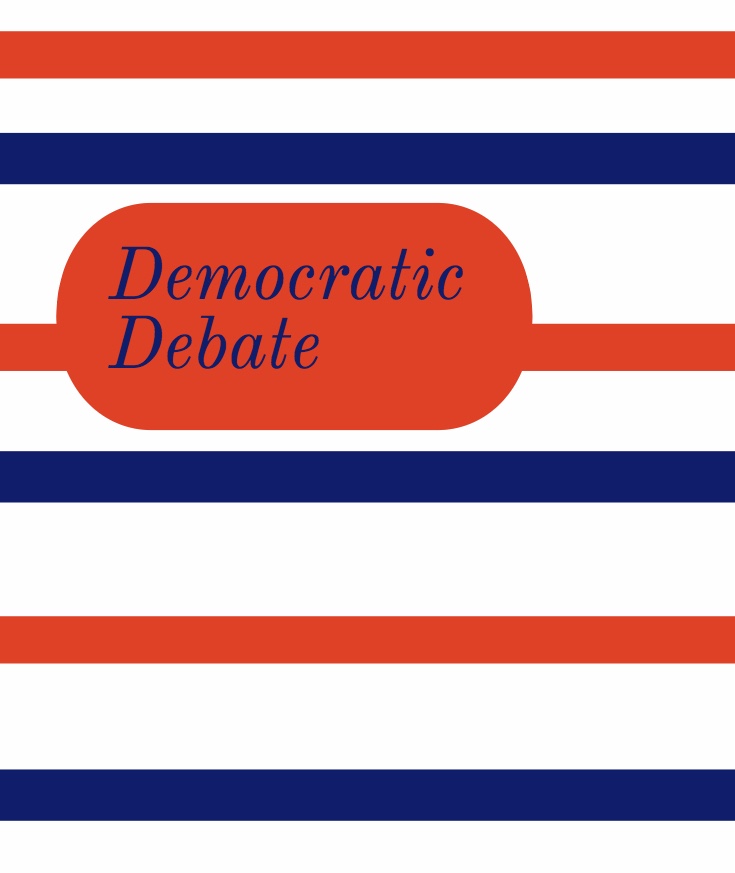Fourth Democratic Debate Exposes the Petty Division Within the Democratic Party
Opinion
The Fourth Democratic Debate for the 2020 presidential election was held in Ohio on Tuesday, Oct. 15.
November 5, 2019
The Fourth Democratic Debate on Oct. 15 saw the Democratic candidates in a tense and compelling discussion against one another. The night centered around the ongoing impeachment investigations into President Trump, and while they seemed to all be in agreement on this pressing issue, it was pretty much the only ideological similarity they expressed. With a total of 12 candidates on stage, an all-time high for the party at this point in the campaigning process, the discourse through the night exemplified the polarization of the candidates racing for the 2020 election nomination, as well as the division of the broader Democratic Party.
A more aggressive and strong contender than in the past, Mayor Pete Buttigieg had a telling moment when going up against Senator Elizabeth Warren over healthcare. Buttigieg, who is promoting his “Medicare For All Who Want It” program, went head to head against Warren, who is proposing a “Medicare For All” policy along with a tax on the very wealthy to fund it. Both candidates spoke of how the American healthcare system would be altered under their administrations’ if they were elected. However, Warren faced harsh criticism from not only Buttigieg but also other candidates in regards to her Medicare plan and how she was going to pay for it. Despite being slightly weak in responding, she successfully deflected the many verbal attacks from Buttigieg, Senator Amy Klobuchar and Congressional Representative Beto O’Rourke throughout the debate. For example, O’Rourke’s use of the word “punitive” to describe Warren was not only a direct remark on her character rather than policy, which is what these debates are for, but also highlighted O’Rourke as someone who would rather use his time on stage to belittle another candidate than defend his argument and talk about what he stands for. Klobuchar painted Warren in a self-absorbed light, telling Warren that her plan “was not the only one,” despite Warren never uttering this statement before.
These debates should be healthy events that facilitate conversations around urgent matters in our country. By no means is it okay for candidates who are members of the same party to cloud their judgments and steer away from inter-party unity. A key moment during the debate came when Senator Cory Booker called for less heated arguments between the candidates because the lack of partisan cooperation would lead to the party’s downfall, reflecting on the aftermath of the 2016 presidential election. In order to beat President Trump in the upcoming election, candidates must realize they still share the same interests when it comes to reforming the country. Instead of fighting each other for no reason, they should stay true to their message of unity and hold meaningful and mature discussions over their policies. In the end, voters will be deciding which candidate not only has the ability to beat Trump but possess vigor and a drive to accomplish the promises they have made on the campaign trail.
Warren, for instance, spoke of her own ideas and policies brilliantly. Other candidates tried desperately to knock her down and dismantle her cool-headed and calculated responses. Even when the line of attack was directed at her, her responses were precise and she never directly criticized the other candidates with the same negativity they treated her with. Rather than look at the candidate who was contradicting her, she looked out into the crowd, towards the American people who will ultimately decide who is fit to lead them. On the other hand, Buttigieg directly contradicted himself by targeting a fellow candidate. Despite calling for unity within the Democratic Party in regards to “taking down the NRA,” he was aggressive during the debate towards Warren. Buttigieg has a good message, but calling for peace and cooperation within the party when he himself had churned the waters can only be described as ironic.
In the ever-changing world of politics, politicians and ideologies are always subject to change. As an individual who will be able to vote in three short years, I want to know that the person running for the highest office in the country will have my best interests and the interests of the American people at heart. Despite their ideological differences, the party should set aside their quarrels and focus on exactly what is best for the party and best for the future of the country. Resorting to petty attacks rather than focusing on how to set forth the best policies could collapse the Democratic party. We need politicians who will help shape a more cohesive nation, not ones who say they want a more equal nation but are only polarizing it further. I hope the candidates see that the only way they can replace President Trump is by not stooping to his level and attacking others in order to seem comparatively better. Hurting one another accomplishes nothing.




Srilekha Cherukuvada • Nov 7, 2019 at 11:16 pm
LOVE THIS KEANA! <3